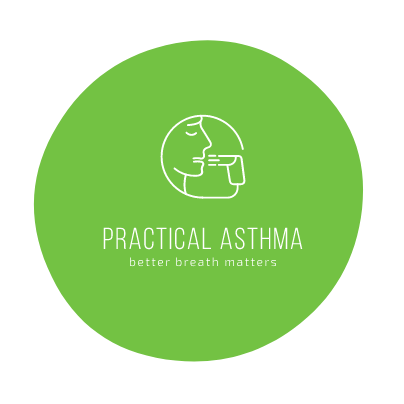QUESTIONS:
Factors Affecting the Expression of Asthma
While Practical Asthma Review has some evidence-based answers to the following questions, we seek clearer and more definitive knowledge. Your input is most welcome.
GENERAL
Are factors other than allergens, triggers and viruses important in the health of the allergic/ asthmatic? Can lifestyle changes be made to improve the health of the allegic/asthmatic?
VARIABILITY
Is there potentially a week-to-week (or even day-to-day) variability in each individual’s sensitivity to their allergens or triggers, apart from proximity to triggers? For example: is a person who is overweight, sleep deprived, or in poor physical condition more vulnerable to his particular triggers than when that same person is 30 pounds lighter, well rested, or in top physical shape?
Can an allergic/asthmatic in top physical condition resist symptoms in spite of exposure to a trigger?
LOADING
Can poor quality sleeep, certain foods, emotional stressors, or other factors “load up” the asthmatic, making him more susceptible but without causing an exacerbation?
[“Loading” factors are defined as factors that are neither allergens nor triggers, but make the body more susceptible to triggers by loading up residual immunologic capacity.]
STRESS
Does asthma, a state of chronic inflammation even when asymptomatic, act as a chronic low level stressor of the immune and adrenal systems?
Does chronic stress increase needs for specific nutrition or sleep?
Does a stressed, overworked or poorly nourished immune system tend to become more touchy and sensitive to triggers?
SLEEP
Is chronic poor quality sleep a stressor? Does poor sleep tend to make the immune system more reactive by not allowing sufficent “rest and recharge,” inhibiting HGH secretion or some other mechanism?
PHYSICAL CONDITIONING and EXERCISE
Is good physical conditioning is beneficial in controlling asthma and allergy? Is a higher metabolic rate generally helpful to asthmatics?
HYDRATION
Is an asthmatic that is not well hydrated more susceptible to viral infection? Could the hydration status of an asthmatic affect the reactivity of mast cells or the expression of inflammatory mediators? Do asthma medicines affect the hydration status of patients? Does the typical U.S. diet tend to leave the average person in a less-than-optimal state of hydration? Is optimal hydration necessarily achieved by drinking plenty of liquids?
DIET and NUTRITION
Sick people often have increased or special nutritional needs. Is this possibly true for allergic/asthmatics? Is adequate account is given to the excretion of certain nutrients—such as tyrosine, vitamins B and C, magnesium, zinc—caused by many drugs used in routine therapy for atopic/asthmatics?
According to the latest figures available (1996) from the NSFS survey, many U.S. americans are below RDA values in zinc, calcium, magnesium, B vitamins, vitamin C, and others. Is it possible that the typical U.S. diet does not promote optimal nutrition for asthmatic health?
Do diet, stress, blood insulin levels, and exercise have any bearing on the body’s hormone systems? Is it possible, difficult, dangerous, or expensive to try to manipulate these hormone systems with diet and other means in the long run—rather than rely on pharmaceutical versions of these substances?
Could vitamin/mineral supplementation be important or useful in asthma therapy?
FOOD ALLERGIES AND INTOLERANCES
Could some common foods, by immune mechanisms not involving IgE mediation, cause problems for asthmatics? Could they “prime” the immune system for greater than normal reactivity?
To what extent can food intolerances, indigestion, or malabsorption affect the onset or severity of asthma? How common is it for poorly digested food particles, such as peptides, to pass through the intestinal wall into the bloodstream? Could this contribute to inflammation or otherwise affect the reactivity of asthmatics?
SUMMARY:
- Have the above questions been addressed by medical authorities? If so, where? If not, do they deserve serious consideration?
- Could a proactive, expanded notion of “avoidance”—a strategy of optimizing all possible factors—possibly bring about sufficient improvements in health to allow the reduction of maintainence medication?
- Could the principles of basic asthma health be formulated even if the mechanism of asthma is still not completely understood? If principles of basic asthma health can be understood, could children learn how to “outgrow” their asthma?
- Is it possible that many asthmatics could learn to live a vibrant, healthy life without chronic dependence on medications?
- Is the idea of lifestyle change so daunting to both patient and doctor that such measures are rarely considered?
